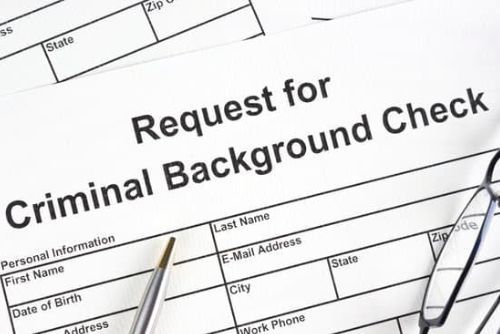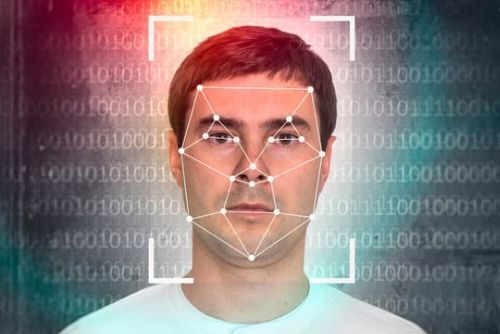What Does A Background Check Show

As someone who has worked in HR for several years, I can tell you that background checks are a crucial step in the hiring process. But what does a background check show?
Well, it depends on the type of background check being conducted and the laws governing your particular industry or region.
Generally speaking, a background check service will provide a comprehensive overview of an individual's personal and professional history. This can include criminal records, credit reports, employment verification, education verification, and more.
The purpose of these checks is to ensure that companies are making informed decisions when it comes to hiring candidates who will be working with sensitive information or interacting with customers on a regular basis.
So if you're curious about
what shows up on a background check and why it matters, keep reading!
Background Check Overview
You're probably wondering, "What does a background check actually show?"Well, let me tell you - it can reveal some pretty eye-opening information about your past.
Background checks are a comprehensive review of an individual's criminal and personal history. They are commonly used by employers to screen potential job candidates and by landlords to vet potential tenants.
A criminal background check will typically show any criminal convictions, arrests, or other related legal matters that may exist in a person's past. This can include both misdemeanor and felony charges from local, state, or federal jurisdictions.
In addition to criminal records, other records that may appear on a background check include credit reports, driving records, and employment verification.
Employment background checks are specifically designed for employers who want to make sure they hire the right people. These checks often focus on verifying previous employment history as well as education and certification credentials. Additionally, they may also look at references from previous jobs or conduct interviews with former colleagues or supervisors.
All in all, understanding what a background check shows is essential if you're planning to apply for a new job or rent a property. The information revealed in these checks could potentially impact your future opportunities. That being said, it's always best to be honest about your past when asked about it during an application process - honesty truly is the best policy!
Employment Screening Basics

If you're applying for a job, chances are high that the employer will run some kind of background check before hiring you. Employment screening is a process that helps employers confirm your identity and qualifications, as well as evaluate any potential risks associated with bringing you on board.
When it comes to employment screening basics, there are a few key things to keep in mind. First and foremost, it's important to understand that different employers may have different requirements when it comes to background checks. While some companies may only require basic information like your name and past employment history, others may delve deeper into criminal records or credit reports.
To help you prepare for the screening process, here are four important things to know about employment screening:
- Screening processes can vary widely from one employer to another.
- Employers typically conduct background checks to verify an applicant's identity and qualifications.
- Depending on the position being applied for, employers may also look into an applicant's criminal record or credit history.
- It's important to be honest and forthcoming about any relevant details during the application process.
With these points in mind, let's take a closer look at the different types of background checks that employers might use in their hiring processes.
Types Of Background Checks
There are various ways in which employers may investigate a potential employee's history before hiring them. These types of background checks can range from simple reference checks to more comprehensive investigations that delve into an individual's criminal, credit, and employment history. The information gathered during these checks is used to make informed decisions about whether a candidate is suitable for the position they've applied for.
One of the most common types of background check that employers conduct is a criminal background check. This type of check involves reviewing an individual's criminal record to determine if they have any convictions or arrests on their record. A criminal background check can reveal misdemeanors, felonies, and even traffic violations depending on the state laws where the search takes place.
Another type of background check that some employers use is a credit report check. This type of investigation looks at an individual's financial history to see if they have a good track record when it comes to managing their finances. Employers may use this information as part of their decision-making process because it can give them insight into an applicant's responsibility and reliability.
There are different types of background checks that employers conduct before hiring new employees. These checks help organizations make informed decisions about who they hire by providing valuable insights into a candidate's past behavior and actions. While some employers may choose not to run certain types of background checks, others consider them essential in ensuring they're hiring trustworthy and reliable individuals for their organization.
Moving forward, let's discuss how criminal history searches play a critical role in determining if someone's fit for employment.
Criminal History Search

Let's explore how a criminal history search can provide crucial information for employers when making hiring decisions. A criminal background check is an important tool used by many businesses to screen potential employees. This type of background check involves searching public records to identify any criminal history or convictions that an applicant may have.
A criminal history search can reveal a lot of information about a person's past, including any prior arrests or convictions. Employers use this information to evaluate the risk of hiring someone with a history of criminal behavior. For example, if someone has been convicted of theft in the past, they may be more likely to steal from their employer in the future.
When conducting a criminal background check, there are several things that employers should look for. They should pay close attention to any felony convictions, as these are generally considered more serious than misdemeanors. Additionally, they should consider the nature and severity of the crime committed and how it relates to the position being applied for.
A criminal history search is an essential part of the hiring process for many companies. It provides valuable insight into an applicant's past behavior and can help employers make informed decisions about who they hire.
Next up, we'll take a closer look at how employers review credit reports when screening potential candidates for employment opportunities.
Credit Report Review
You need to review credit reports when screening potential candidates for employment opportunities, as it can give you crucial insight into their financial responsibility and trustworthiness. A credit report shows the candidate's payment history, outstanding debts, bankruptcies, and judgments.
All this information will help you determine if they are financially responsible and trustworthy enough to handle sensitive company information or finances. Employment verification is also a crucial aspect of a background check as it confirms the candidate's professional history. However, a credit report review goes beyond just verifying employment history; it shows how well they manage their personal finances. An individual with a poor credit score may be more prone to unethical behavior such as embezzlement or fraud.
Incorporating a credit report review in your background check process is essential in identifying any red flags that could potentially harm your company's reputation. With this knowledge at hand, you can make an informed decision about whether or not to hire the candidate.
Once you have screened the candidate's credit report and employment verification successfully, the next step is identity verification to ensure that they are who they claim to be - let's explore this further in the next section.
Identity Verification

So, we've just talked about the importance of reviewing a candidate's credit report during a background check. But there's another crucial aspect that can't be ignored – identity verification.
A background check is pointless if you can't be sure that the person you're screening is who they say they are. Identity verification aims to confirm that the individual being screened has provided their correct name, date of birth, and social security number.
Identity verification is typically done by cross-referencing multiple sources such as public records databases, credit bureaus, and other data sources. At its most basic level, identity verification ensures that the candidate hasn't falsified any essential information on their application or resume. Additionally, it provides a starting point for more in-depth criminal record searches.
Speaking of criminal records, that brings us to our next subtopic – pre-employment background checks. While identity verification and credit reports provide valuable insights into an applicant's character and financial history respectively, criminal record checks are an essential step in ensuring workplace safety and security.
Let's dive deeper into what pre-employment background checks entail and why they're so important for employers looking to make smart hiring decisions.
Pre-Employment Background Check
Pre-employment background checks are a crucial aspect of the hiring process, providing employers with important insights into a candidate's criminal history and potential risks to workplace safety.
What does a background check show? A pre-employment background check usually includes a background screening that covers an individual's criminal record, employment history, and education verification. This helps employers ensure that they hire the right candidate for the job.
A pre-employment background check can reveal any past convictions or pending criminal charges against an individual. It also verifies an applicant's work experience and education credentials. Employers use this information to make informed decisions about whether or not to extend a job offer.
Additionally, it can help protect businesses from potential lawsuits by ensuring that they do not hire someone who may pose a threat to their employees or customers.
Conducting pre-employment background checks is essential for companies looking to maintain a safe and productive workplace environment. It's important for employers to take time in reviewing the results of these screenings before making final hiring decisions.
In the next section, we'll discuss what goes into conducting a thorough background check for hiring purposes without overlooking any critical details.
Background Check For Hiring

Conducting a thorough background check can help employers make informed hiring decisions and ensure a safe workplace environment. As an employer, I understand the importance of conducting a background check for employment before making any hiring decision. Here are four emotional reasons why every employer should conduct pre-employment background checks:
- Protect your business reputation - Hiring someone with a criminal record or negative work history can harm your company's reputation.
- Ensure safety in the workplace - Background checks can reveal potential red flags such as violent behavior or drug abuse, which could put other employees at risk.
- Save time and money - Avoid the cost of recruiting, training, and replacing an employee who isn't a good fit for your company culture.
- Minimize legal risks – If you negligently hire someone who later harms others on the job, you could be held liable for their actions.
There are many benefits to conducting a background check for hiring decision. By ensuring that prospective employees meet certain qualifications and have no criminal history or negative work experience, employers can protect their business reputation while also promoting safety in the workplace.
Moving forward, let's explore what exactly is included in a typical background check.
Background Check Consists Of
As we've discussed earlier, background checks are an essential part of the hiring process. But what exactly do they show? Well, it depends on the type of check being performed and the available information.
Generally speaking, a background check consists of verifying an individual's personal details, such as their name, address, social security number, and employment history. Employment history is one of the most critical components of a background check. This information helps employers determine whether or not someone has the necessary skills and experience to perform a particular job successfully. Additionally, it provides insight into an individual's work ethic and reliability.
A thorough employment history check will include verifications with past employers to confirm dates of employment, job titles held, salary information, and reason for leaving. In addition to employment history verification, a comprehensive background check may also include criminal record checks, credit checks (with permission), education verification, reference checks (personal or professional), driving record checks (if applicable), and drug testing (depending on industry requirements).
Employers have an obligation to ensure that they are making informed decisions when hiring new employees. In our next section on employer obligations, let's discuss this further.
Employer Obligations

To ensure the safety and success of your business, it's crucial that you understand and fulfill your obligations as an employer when it comes to background checks. One of these obligations is to obtain a pre-employment background check report for all prospective employees. This report will help you verify the information provided by applicants, such as their work history, education, criminal record, and credit score.
It's important to note that there are legal requirements governing how you can use the information contained in a background check report. For instance, you can't discriminate against job candidates based on their race, gender, age, or any other protected characteristic. You must also provide applicants with a copy of their report if they request it from you.
As an employer, it's your responsibility to ensure that your hiring process is fair and transparent. Conducting a pre-employment background check is one way to achieve this goal.
In the next section, we'll explore different types of background checks that you can use in your hiring process.
Different Types Of Background
If you want to make informed decisions about who you hire, it's essential that you know the different types of background checks available. A pre-employment background check is a comprehensive report that provides employers with criminal history information, employment verification, and education credentials.
There are other types of background checks that employers can request, depending on the nature of the job and industry. Here are some examples of different types of background checks:
- Credit History Check - This type of check is used to assess an applicant's financial responsibility. It includes information such as credit score, payment history, and outstanding debts.
- Social Media Check - Employers may use social media platforms to evaluate an applicant's behavior, personality traits, and overall online presence.
- Drug Test - Employers can request drug testing to ensure applicants aren't using illegal substances or abusing prescription drugs.
- Reference Check - A reference check involves contacting previous employers or personal references provided by the applicant. This helps verify employment history and character.
It's important for employers to understand which types of background checks they're allowed to conduct under employment background check laws. These laws vary from state-to-state and may impact the legality of certain screenings. By knowing the different types of background checks available and complying with applicable laws, employers can make informed hiring decisions that protect their company while also respecting applicants' rights.
Employment Background Check Laws

Now that we've got a better understanding of the various types of background checks, let's delve into employment background check laws. As an AI language model, I find it fascinating to learn about these regulations and how they impact pre-employment background checks.
Firstly, it's worth noting that there are federal and state laws governing background screening for employment purposes. These laws aim to protect job applicants from discrimination based on their race, gender, religion, age, or disability.
For instance, the Fair Credit Reporting Act (FCRA) requires employers to obtain written consent before conducting a pre-employment background check and provide applicants with a copy of the report if they are denied a job as a result.
Moreover, some states have additional requirements that employers must comply with when conducting employment background checks. California law, for example, prohibits employers from asking about criminal history until after making a conditional job offer. Similarly, Massachusetts has enacted strict limits on what can be included in a criminal record check for employment purposes.
Understanding employment background check laws is crucial for both employers and job seekers. Employers need to ensure their hiring practices are compliant with applicable laws to avoid potential legal issues. On the other hand, knowing your rights as an applicant can help you navigate the pre-employment screening process and make informed decisions about your career path.
As we move into the next section about applicant rights, it's important to keep in mind the significance of complying with employment background check laws while also balancing fair hiring practices.
Applicant Rights
You can imagine yourself sitting nervously in the waiting room, wondering what your rights are as an applicant undergoing a background check. As an applicant, you have certain rights that must be respected during the pre-employment background check process.
These include the right to know what information will be included in your background check report and how it will be used. Under the Fair Credit Reporting Act (FCRA), employers must obtain written consent from job applicants before conducting a background check. Additionally, applicants have the right to request a copy of their background check report if they are denied employment based on its contents.
If any information in the report is inaccurate or incomplete, applicants also have the right to dispute it with both the employer and background check provider. Knowing your applicant rights can help ease some of the anxiety surrounding a pre-employment background check.
It's important to remember that while employers are looking for trustworthy employees, they must also follow legal guidelines when conducting these checks. Next, we'll explore some options for finding reputable and reliable background check providers for your peace of mind.
Background Check Provider Options

Finding reputable and reliable providers for pre-employment background checks can be challenging, but it's crucial to ensure the accuracy and legality of the process. As an AI assistant, I've researched different options for businesses that need to conduct background checks on potential employees.
There are various background check provider options that businesses can choose from, depending on their needs and budget. One popular option is using online platforms such as GoodHire or HireRight. You can also use a private investigator like Alibi Investigations which will be cheaper than other sources for a background check. These companies offer preemployment screening services that include criminal record searches, employment verification, education verification, credit history checks, and more. They also provide customizable packages with different levels of thoroughness and turnaround times. This method is convenient since everything can be done online through a secure portal.
Another option is relying on traditional investigation agencies such as Pinkerton or Kroll. These providers have been in the industry for decades and offer a wide range of investigative services beyond pre employment screenings. However, their prices tend to be higher than online platforms due to the personalized approach they take in each case. Depending on the nature of the job position being filled, this may be necessary for certain businesses.
There are various background check provider options available for businesses looking to conduct pre employment screenings. It's important to choose a company that fits your specific needs while ensuring they follow all legal requirements when conducting these searches.
When it comes to running background checks on potential hires, it's essential to identify any potential red flags that could indicate unsuitable candidates early in the hiring process.
Potential Red Flags
candidates for the job, and you don't want to waste time or resources on someone who's not a good fit. Background checks are an excellent tool to help you uncover any problematic issues that may be lurking in your candidate's past.
One of the most common red flags that might come up during a background check is a criminal conviction. Depending on the severity of the crime, it may be an automatic disqualifier or require further investigation. It's essential to have a clear policy in place regarding what types of convictions would preclude someone from being hired and communicate this with all candidates upfront.
Another potential red flag that could show up during a background check is discrepancies in employment history, education credentials, or reference checks. These inconsistencies could indicate dishonesty or lack of attention to detail, which are not desirable traits for most positions. Be sure to verify all information provided by candidates and follow up with any discrepancies found during the background check process. By doing so, you'll ensure that you're hiring someone who's trustworthy and reliable.
Conducting thorough background checks can help identify potential red flags when considering job candidates. Criminal convictions and inconsistencies in employment history or credentials are just some examples of things that may arise during these checks. Having clear policies in place regarding what types of offenses would disqualify someone from being hired can prevent wasting time on unsuitable candidates while ensuring trustworthy hires for your company.
Final Thoughts
So, now you know what does a background check show. As someone who's gone through the process myself, I can say it can be nerve-wracking waiting to see what information will come up. But ultimately, a thorough background check is important for employers to make informed hiring decisions and ensure the safety of their workplace.
As an applicant, it's important to understand your rights and know that any negative information on your report may not necessarily disqualify you from a job. If you do have concerns about your background check results or feel like there was inaccurate information included, don't hesitate to reach out to the employer or the background check provider for clarification.
Frequently Asked Questions
Can A Background Check Reveal My Social Media Activity And Online Presence?
Yes, a background check can reveal your social media activity and online presence. As someone who values innovation, it's important to understand that technology has made it easier for potential employers, landlords, or even romantic partners to conduct thorough background checks.
This means that your online behavior is fair game and should be considered as part of your personal brand. While some platforms like LinkedIn may enhance your professional image, other accounts could raise red flags if they contain inappropriate content or evidence of illegal activity.
It's always best to assume that anything you post online could be seen by others and take steps to monitor and curate your digital footprint accordingly.
Will A Background Check Show Any Past Mental Health Issues Or Diagnoses?
Yes, a background check can reveal past mental health issues or diagnoses. This is because some employers and organizations conduct background checks to ensure that their potential employees do not pose any risks to themselves or others.
However, it's important to note that disclosing one's mental health history is voluntary and protected by law in most cases. Therefore, if you have concerns about sharing this information, it may be best to consult with a legal professional before doing so.
Additionally, it's essential to remember that having a mental health issue does not necessarily disqualify you from employment opportunities; many companies prioritize diversity and inclusion and offer resources for employees struggling with mental health challenges.
Is It Legal For An Employer To Conduct A Background Check Without My Consent?
I was recently wondering about my rights as an employee when it comes to background checks. Specifically, I wanted to know if it's legal for an employer to conduct a background check without my consent.
After doing some research, I discovered that in most cases employers are required by law to obtain written consent from the job candidate before conducting a background check. However, there are some exceptions such as if the employer is conducting an investigation into suspected misconduct or illegal activity.
It's important to understand your rights as a job candidate and be aware of what information may be uncovered during a background check. As someone who values innovation and progress, I believe transparency and fairness in the hiring process can only lead to better outcomes for everyone involved.
How Far Back In My Employment History Will A Background Check Go?
When I apply for a job, one of the things that often crosses my mind is how far back in my employment history a potential employer will look during a background check.
From my experience, it seems that most employers typically go back about seven years, but this can vary depending on the industry and position. It's important to remember that background checks aren't just limited to employment history; they can also include criminal records, credit checks, education verification, and more.
While it might seem daunting to have someone scrutinize your past like this, it's ultimately for everyone's benefit - ensuring that employees are qualified and trustworthy helps create a safer workplace and better business outcomes overall.
Can I Dispute Any Inaccurate Information Found During A Background Check?
Yes, you can dispute any inaccurate information found during a background check. In fact, it's important to do so in order to ensure that your record is as accurate as possible.
If you come across something that you believe is incorrect or outdated, the first step should be to contact the agency that conducted the background check and provide evidence that contradicts their findings. It's also a good idea to keep records of all communication related to the dispute in case further action needs to be taken.
Remember, having an accurate background check is crucial for employment opportunities and other important aspects of life, so don't hesitate to take action if necessary.













